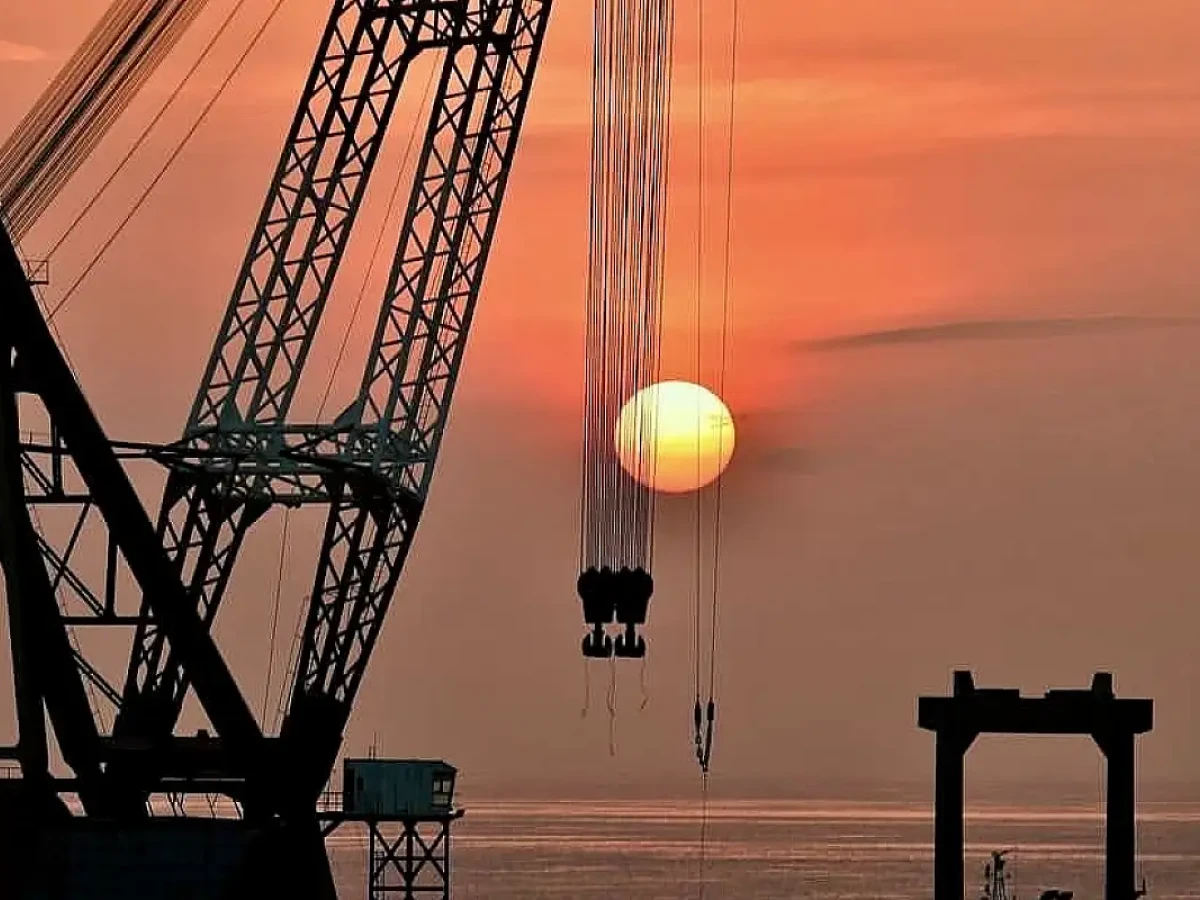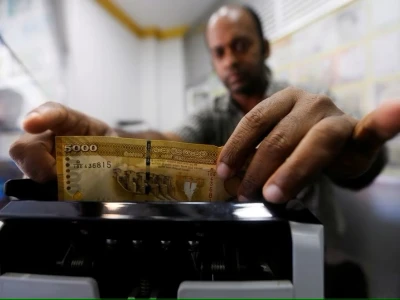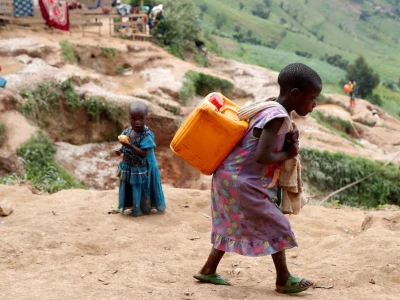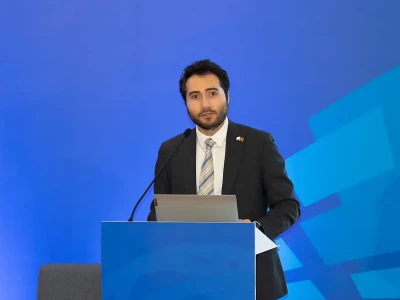
Maldives economy on red alert; headed towards crisis
"Everybody [all the politicians] wanted to promise their voters good things without saying, well, this would actually cost a lot of money, which we don't have".
Top Stories
-
PayPal testing underway ahead of Maldives launch, says minister
-
Maldives again says no oil supply shortages expected
-
Govt to release MVR 200 million to private companies next week
-
Maldives will not face oil or food shortages, says president
-
$650mn raised to settle Sukuk, immediate repayment possible: Pres
By
Ahmed Naif
"Currently, Maldives is looking like how it was in Sri Lanka two years ago in December 2021, just before the economic crisis hit my home country," Shanta Devarajan, professor of international development at George Town University in the US, said in his keynote speech at a World Bank-organised discussion on the country's economy held on Wednesday.
As he said, by the end of this year, Maldives has crossed the red line on all economic measures.
Maldives' debt has exceeded the size of the economy by many times, reaching 110% of GDP. The government is borrowing billions of Rufiyaa from the central bank, the MMA, to meet state expenditures. About MVR 10 billion has been printed to cover the expenses. The real value of the dollar in the market has reached MVR 18 per dollar, and the Rufiyaa has fallen sharply against the dollar. Credit rating agencies had given Maldives a low rating of 'B minus'.
"The risk to Maldives is very, very high. There is a huge chance of what happened to Sri Lanka happening here. If that happens, the damage to Maldives will be huge for many decades. There is no sugar coating it anymore, this country is in emergency state,” Shanta said.
There is no economist, foreign or domestic financial institution that does not give these warnings to Maldives. The Governor of the Central Bank, Maldives Monetary Authority (MMA), also issued a red warning at the budget review committee of the parliament early this week.
With concern, Governor Ali Hashim told the parliamentary committee that Maldives is now at a critical point. Ali Hashim has been telling that if the revenue does not cover the expenditure of the state, the country will go to this situation for three years.
"We cannot move forward without more external funding. That is the situation. We have been talking about this," Hashim said, adding that without the USD 700 million planned for this year and next year's budget support, it would be difficult to cover expenditure.
The country’s borrowing habit is also closing the way for the country to raise money from abroad. The government's debt to the domestic banks has increased and there is very little money left for them to pay the government. So, the ways to raise money via domestic sources are almost all closed.
According to statistics, the total liquidity of banks in Maldives is only MVR 7.5 billion. Next year, the government needs to borrow USD 17.2 billion to cover its spending.
"I will repeat, there is no other option but to formulate a medium-term fiscal strategy. All directions for borrowing are closing down and the markets are becoming extremely expensive," MMA Deputy Governor Ahmed Imad had told the parliamentary budget review committee.
"If we don't get it from outside, it's very, very unlikely that the funds can be raised from the domestic sources. Banks don't have that much liquidity [money]."
Economy slows down
The country's economy has slowed down since the outbreak of the coronavirus.
The World Bank’s country economist in Maldives, Erdem Atas, said the country’s economic growth has been showing signs of slowing since this November. Despite the increase in tourist arrivals, he said:
-
Economic growth was 4.4% in the first quarter
-
Economic growth was at 0% in the second quarter; This happened because tourism revenue started to decline
-
Despite the arrival of tourists, their spending has declined and the economy has declined
He noted that Maldives' reserves have fallen to an unprecedented low level in recent history. Maldives' official reserves currently stand at USD 552 million, which is just enough to import supplies for 1.9 months.
At the beginning of this year, the country had enough money in its reserves to import three months’ worth of supplies.
"The imbalances in the existing economy are getting worse because the government has not been able to reduce spending this year. Fiscal policy has not been tightened," Erdem said.
According to government spending data, spending increased 35% in the second quarter of this year. The reason for this is the increase in subsidies and construction projects.
According to Erdem, the supplementary budget of MVR 6.5 billion is a major concern. This is an additional expenditure of 20-23% of national output or GDP. Maldives has to borrow money to meet these expenses, but given the global situation right now, it is very difficult to do, he said. This will make the country's debt situation more fragile, he said.
"Economic growth remains normal but the debt situation will become more fragile this year. Additional debt is likely to exacerbate Maldives's economic problems," Erdem said.
'Result of populist pledges by politicians'
According to Shanta, a professor of international development, his biggest concern with the country’s economy is that spending is increasing every year far more than income is increasing, and this is due to the policies of political leaders.
He said that with the election year, all the political parties in Maldives have made big promises to increase subsidies and other things to increase spending to win the support of the people. He said the politicians have been unable to tell the people the truth about the state's financial situation and formulate strong policies to save the country from it.
"Everybody [all the politicians] wanted to promise their voters good things without saying, well, this would actually cost a lot of money, which we don't have, and ultimately the people who have to pay for that cost are the same people who vote," he said.
"If this continues, what will happen three or four years from now? The consequences will be very, very bitter. This has to come to an end at some point."
Shanta said the best solution is for international financial institutions to tell the people immediately about the adverse impact of politicians' policies on the economy. The story should be told through the media, he said.
"I worked at the World Bank for 28 years, always talking about this behind closed doors. I have talked about it many times with the Maldivian finance minister. But this is a serious situation. I want to tell the public about the impact,” he said.
According to Erdem, what Maldives needs to do to overcome the current situation is to immediately find ways to increase domestic revenue and accelerate expenditure reduction measures. He said the only way to do that is to cut subsidies to everyone and start giving direct financial assistance to those in need. He said Aasandha should also be changed to that rule.
In addition, he mentioned the following measures:
-
Reduce the dependence of government companies on the state budget and strengthen the system of corporate accountability and oversight
-
Reduce the role of government companies in the economy and privatise businesses that could be allocated to the private sector
-
Develop a system to make the most of the state's assets and investments and implement only essential projects that are necessary for the time being
-
Change the way social housing schemes are run and increase private sector participation in such projects
-
Formulate a legal framework or law to reduce Maldives' debt and manage it
"The Maldives needs to speed up measures as soon as possible. Especially to speed up cost reduction. We need to take precautionary measures. Otherwise, a very difficult situation is ahead," Erdem warned the government during a panel discussion, which was also attended by foreign envoys from countries like India and Australia.




